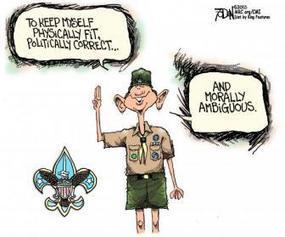On Sunday, New York Times reporter Jennifer Steinhauer explored how the Sunday network interview show producers and politicians “collaborate in a seductive ritual” to book the most powerful guests. But there’s a great sameness on the guest list: Sen. John McCain’s done 60 Sunday shows just since 2010.
Steinhauer says he’s a “dream guest” in part because he “compares members of his own party to deranged fowl” (wacko birds), at least at liberal networks:
When it comes to a dream guest, program hosts say, Mr. McCain checks almost every box: a senior Republican senator who can speak authoritatively and contemporaneously on many issues, flies secretly to Syria, compares members of his own party to deranged fowl and yet is a reliable opponent of most Obama administration policies.
“What makes a good guest is someone who makes news,” said Mr. Wallace, the Fox host. “To make news, you have to be at the center of the news and willing to talk about it in a noncanned way, someone who always come to the shows ready to play.”



 Your new post is loading...
Your new post is loading...














Great talk show insight, especially what makes a great guest like 'Wackobird' Whacker John McCain. DC is never dull. Or is it?